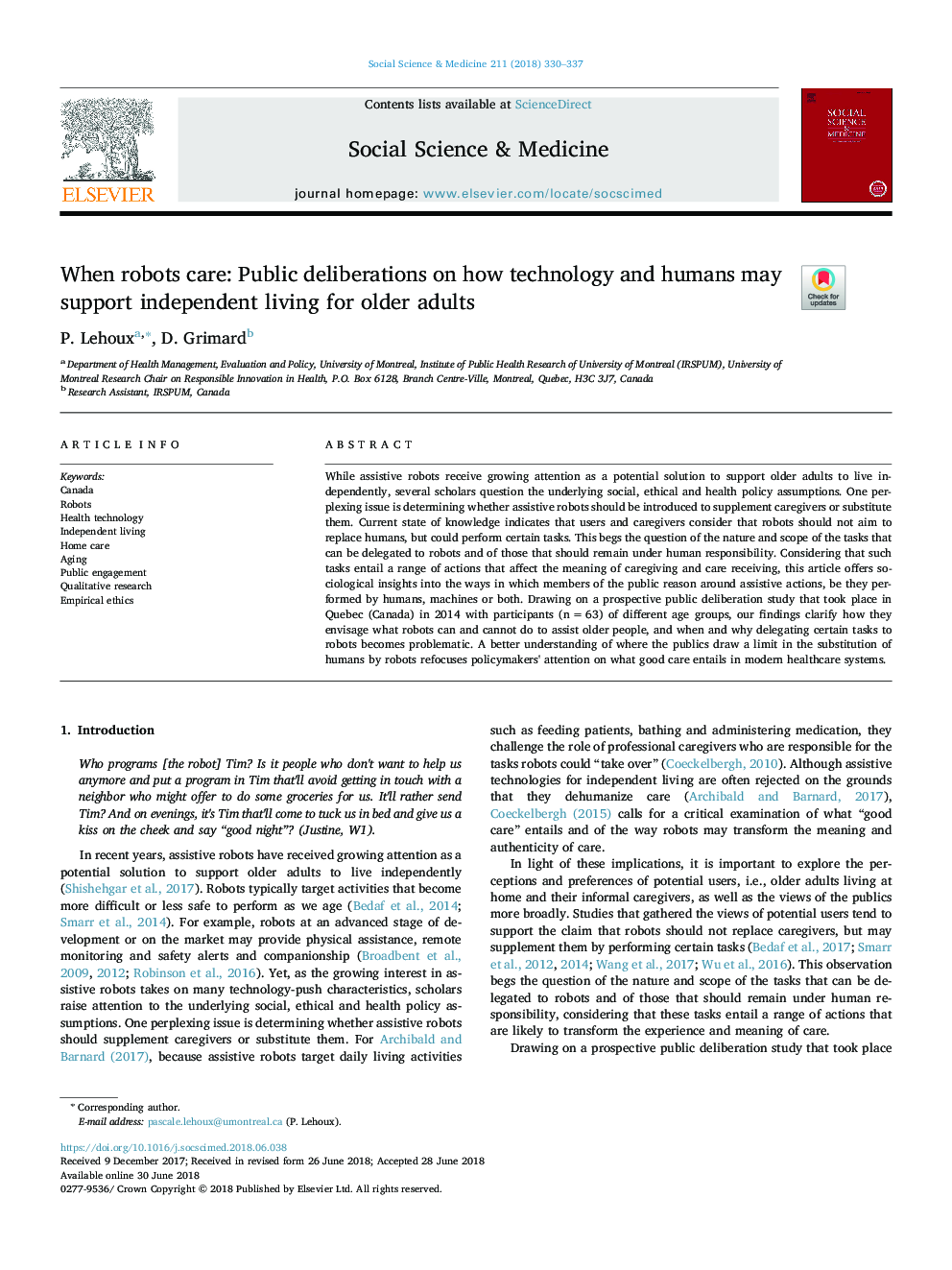| Article ID | Journal | Published Year | Pages | File Type |
|---|---|---|---|---|
| 7327605 | Social Science & Medicine | 2018 | 8 Pages |
Abstract
While assistive robots receive growing attention as a potential solution to support older adults to live independently, several scholars question the underlying social, ethical and health policy assumptions. One perplexing issue is determining whether assistive robots should be introduced to supplement caregivers or substitute them. Current state of knowledge indicates that users and caregivers consider that robots should not aim to replace humans, but could perform certain tasks. This begs the question of the nature and scope of the tasks that can be delegated to robots and of those that should remain under human responsibility. Considering that such tasks entail a range of actions that affect the meaning of caregiving and care receiving, this article offers sociological insights into the ways in which members of the public reason around assistive actions, be they performed by humans, machines or both. Drawing on a prospective public deliberation study that took place in Quebec (Canada) in 2014 with participants (nâ¯=â¯63) of different age groups, our findings clarify how they envisage what robots can and cannot do to assist older people, and when and why delegating certain tasks to robots becomes problematic. A better understanding of where the publics draw a limit in the substitution of humans by robots refocuses policymakers' attention on what good care entails in modern healthcare systems.
Keywords
Related Topics
Health Sciences
Medicine and Dentistry
Public Health and Health Policy
Authors
P. Lehoux, D. Grimard,
